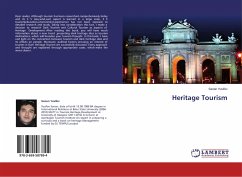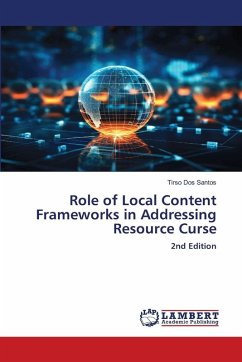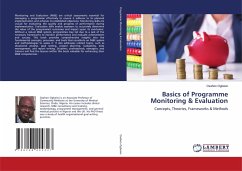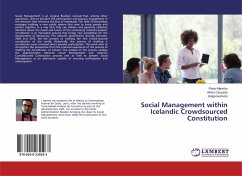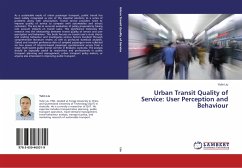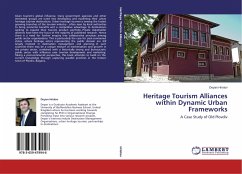
Heritage Tourism Alliances within Dynamic Urban Frameworks
A Case Study of Old Plovdiv
Versandkostenfrei!
Versandfertig in 6-10 Tagen
41,99 €
inkl. MwSt.

PAYBACK Punkte
21 °P sammeln!
Given tourism's global influence, many government agencies and other interested groups are lured into developing and marketing their urban heritage tourism destinations. Urban heritage tourism is among the fastest growing branches of the tourism industry - often seen by local authorities to bring economic benefits and a competitive advantage to destinations seeking to expand their tourism product portfolio. Private stakeholder alliances have been the focus of the majority of published research. Hence there is a need for further enquiry into collaborative practices among public sector organisat...
Given tourism's global influence, many government agencies and other interested groups are lured into developing and marketing their urban heritage tourism destinations. Urban heritage tourism is among the fastest growing branches of the tourism industry - often seen by local authorities to bring economic benefits and a competitive advantage to destinations seeking to expand their tourism product portfolio. Private stakeholder alliances have been the focus of the majority of published research. Hence there is a need for further enquiry into collaborative practices among public sector organisations. This is particularly the case for post-communist states, where heritage actors representing the public domain are still largely involved in destination management and planning. In such countries there may be a unique mixture of marketisation and growth in the private sector, combined with a historically strong and bureaucratic public sector with influence over tourism development and marketing. Taking a post-communist perspective, this book attempts to build on the current knowledge through capturing parallel practices in the historic town of Plovdiv, Bulgaria.



